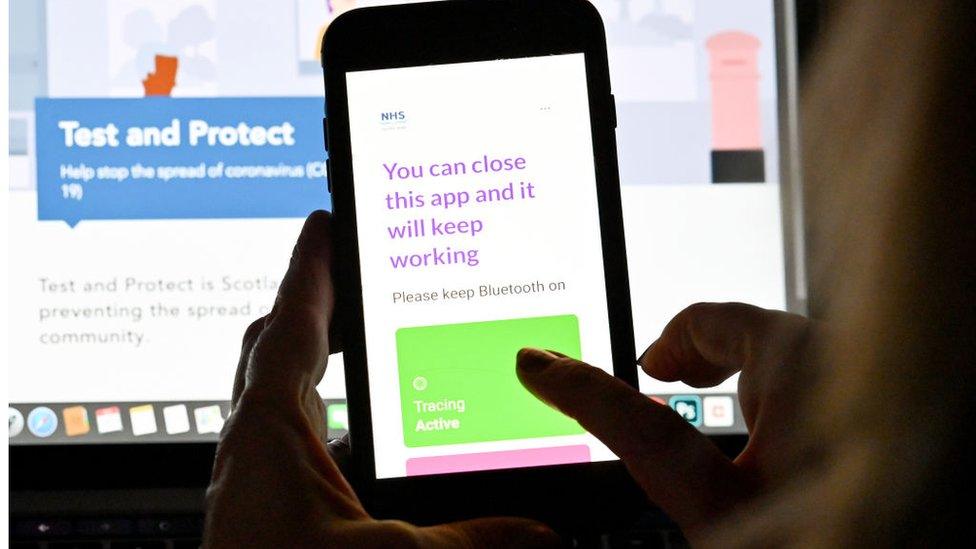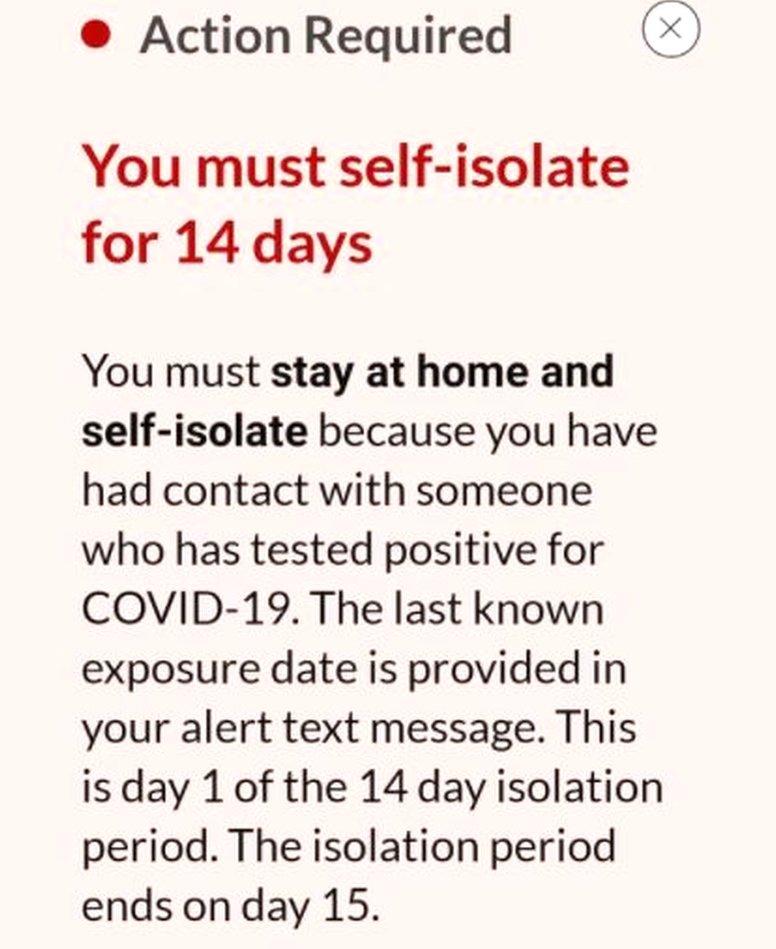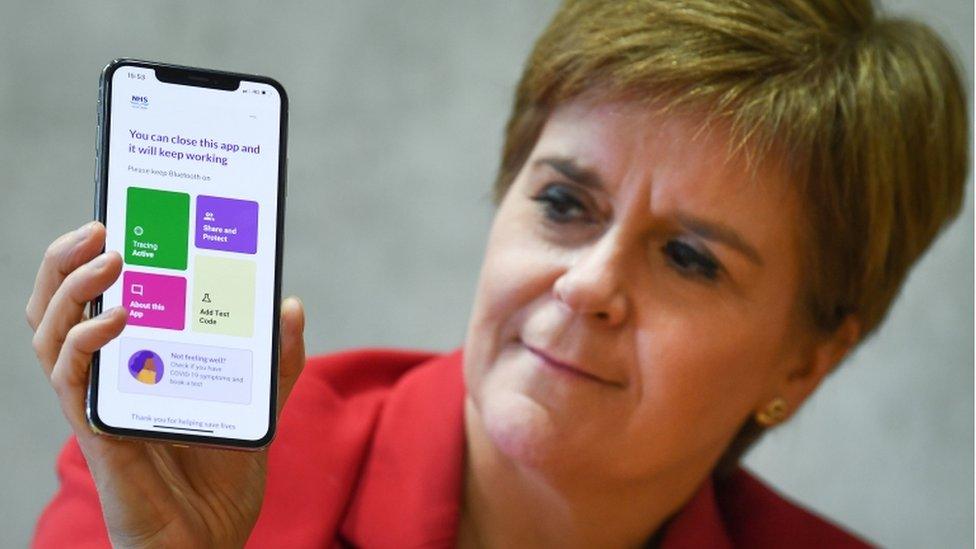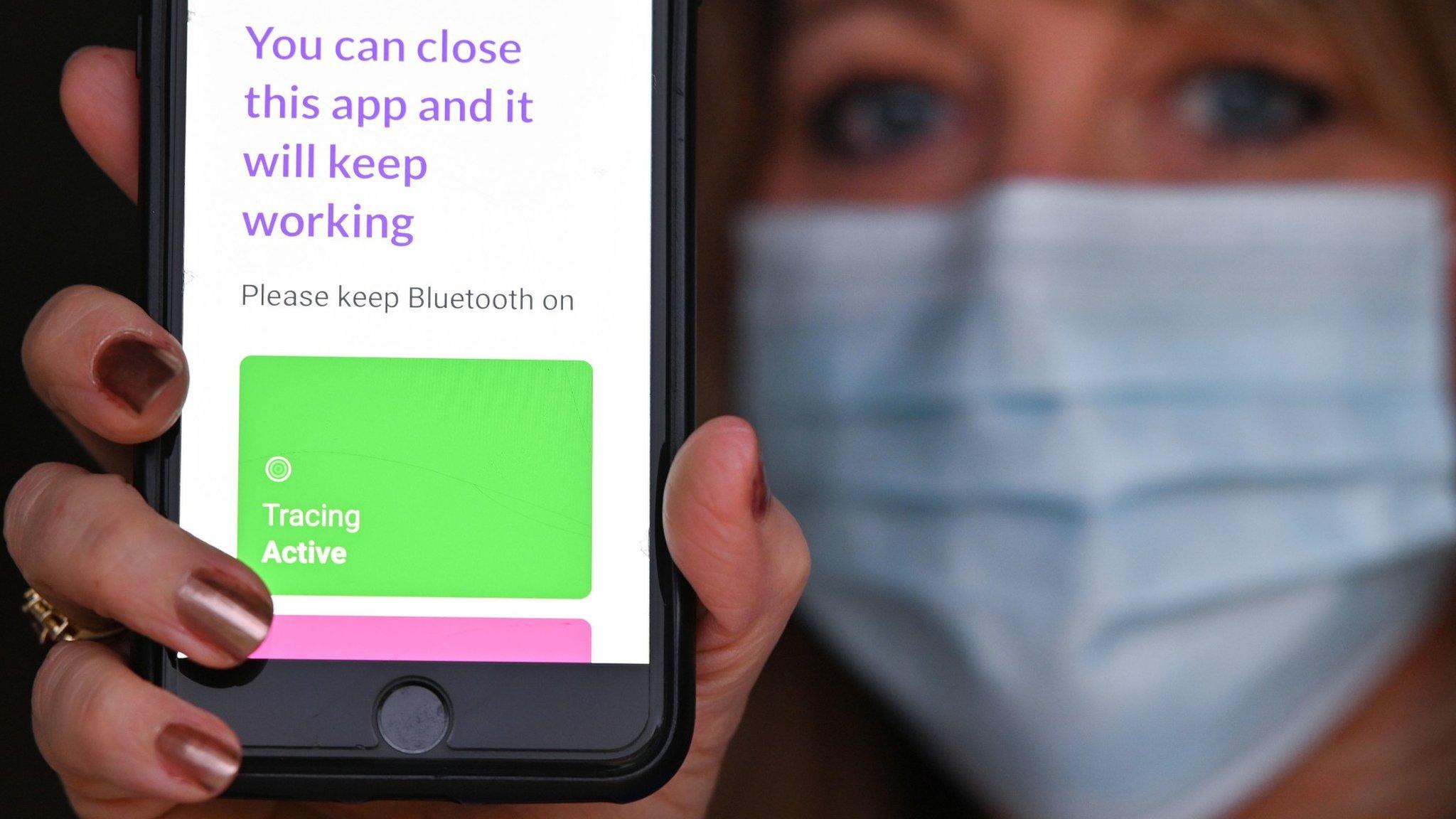'App thought I'd catch Covid through neighbour's floor'
- Published

A coronavirus app user says he was told to self isolate when his phone thought he had been a close contact with his upstairs neighbour.
The Protect Scotland app has been downloaded more than a million times.
It uses bluetooth to communicate with other app users and alert people who have come into close contact with a positive case.
But one user has told BBC Scotland news he self-isolated for days before he realised what had happened.
John (not his real name) said he had already been self-isolating because he had gone into hospital for a procedure.
As a result, he was very cautious with his movements and was careful when he did go out after his recovery.
'I knew days they entered results'
He said: "I had two days when I was out, I knew exactly where I'd been, I knew that I'd conformed to all the rules and regulations and then suddenly I got the first ping saying that I had to self-isolate.
"I was a bit surprised but I thought 'I've got to stick by the rules' and then the next day I got another ping and I started to be suspicious because I knew the date of exposure it was quoting I had not been at any real risk."
John had noticed his neighbours had not been at work and started to wonder if they could be affected too.
He checked the bluetooth on his phone and discovered he was registering a TV that was not in his house. This made him think there was a chance his phone's bluetooth was picking up his neighbours' TV and that his phone could be showing up on their devices, meaning if they were positive for Covid and entered a code, his app would be alerted.
So he contacted them.
"They were very honest and open," John said. "I was able to tell them when their results had come through because of the two dates I had received a ping from the app."

John received two alerts to self-isolate via his app

The neighbours had entered their positive test codes into the app just before he got the alert.
John said: "Thinking about the house and the dimension, I suppose it wouldn't be that hard to be within two metres, albeit that there's a wall separating us."
When he contacted the NHS Protect Scotland app and explained the situation he was told he did not have to continue self-isolating.
'Not a perfect system'
Tech expert Carrie Marshall told BBC Radio Scotland's Drivetime with John Beattie that this was an issue there was a possibility of all along.
She said: "Bluetooth doesn't stop when it reaches a wall or a ceiling. Radio waves don't stick to the room they are in. It's like playing music to another room in your flat.
"The app tries to differentiate but it is not a perfect system. It tries to limit bluetooth tracking to a proximity of two metres. The signal should get weaker when it hits walls but in a modern flat with thin walls this might not be as effective.
"I think it was decided that the risk of a false positive like this was so small it was a risk worth taking."

Nicola Sturgeon said the Protect Scotland app should not have worked in that way
Nicola Sturgeon said during her daily coronavirus briefing on Monday that the app should not work in that way and that the matter would be looked into.
A spokesman said later: "The Protect Scotland app does not identify who a user has been in close contact with but instead builds a memory of anonymous proximity contacts to support individuals in recording their unknown contacts.
'It's happening'
"Bluetooth signals from adjoining properties are very unlikely to result in a contact alert however a very small number of users may be affected. This is not a common problem and it is more likely that a notification will be correct if received."
She said the app had already notified more than 2,500 people to self-isolate and that person-to-person contact tracing would always be the core part of Scotland's Test and Protect service.
John said: "The FM said that she didn't believe that being in a flat that you wouldn't necessarily get an alert that would force you to self-isolate. Well, guess what - I didn't just get one, I got two. So it's happened, and it's happening and clearly the NHS Protect people know about it because they were aware when I called them."
- Published10 September 2020
